

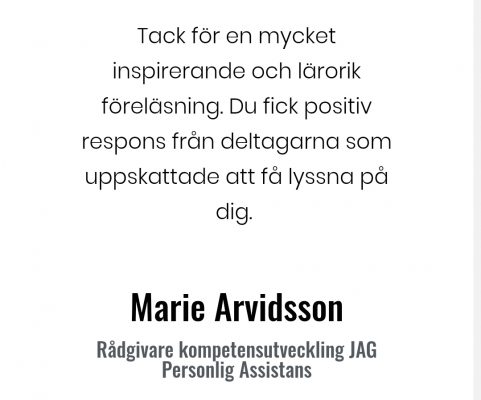

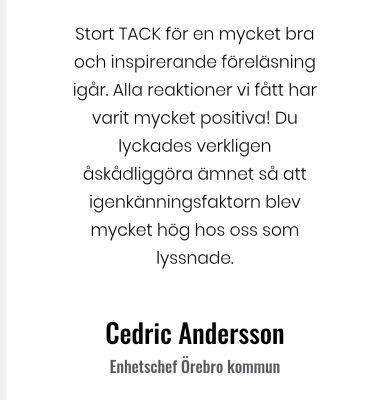



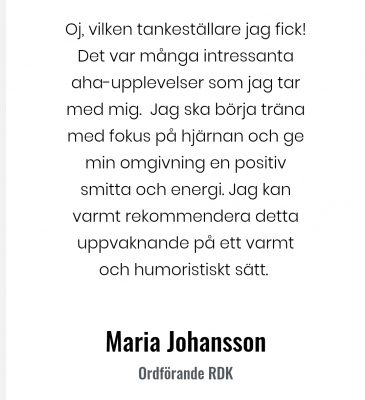

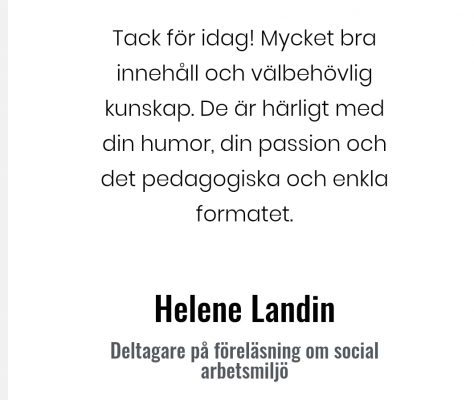

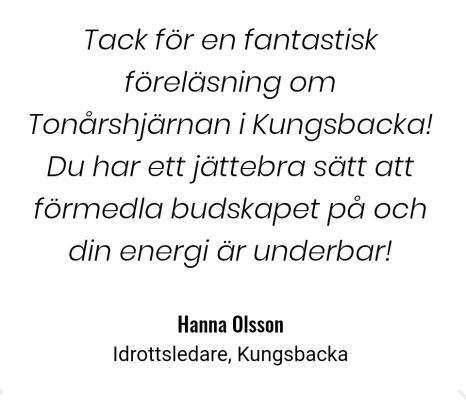



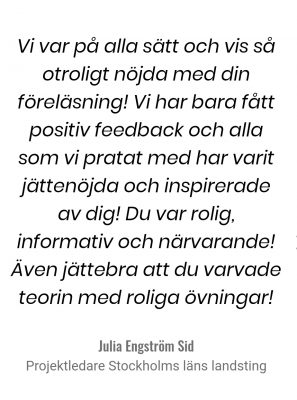



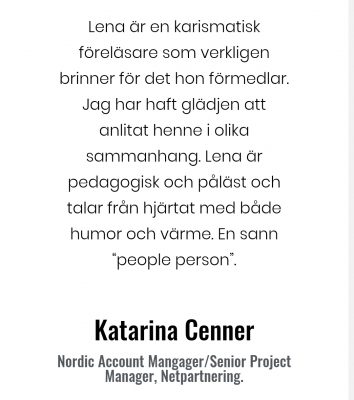

Knowledgeable speakers give keynotes that create clear results. Lena Skogholm is a speaker on topics including interaction, leadership, stress management, self-leadership, social working environments that give happiness at work, difficult conversations and the teenage brain. Read more below about the different talks.
As an keynote speaker, Lena is greatly appreciated for her ability to convey information about the brain and demonstrate how much we benefit from it in our everyday lives – in a recognisable, humorous and stimulating way. And for providing concrete tools so the talk truly creates clear results.
The guiding thread in all of Lena’s talks is understanding the underlying reasons why people function as they do, and having the right tools to act accordingly.
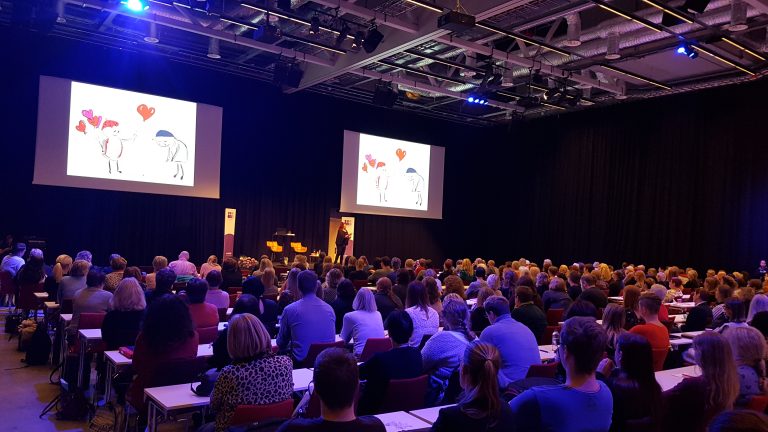

BRAIN-BASED INTERACTIONS – OUTSTANDING!
A talk that provides practical tools you can easily start to use immediately to create outstanding interactions. Good interactions create ripples on the water, and affect both the atmosphere and results in the workplace. Research-based insights presented in a recognisable and humorous way. Compelling, useful and entertaining!
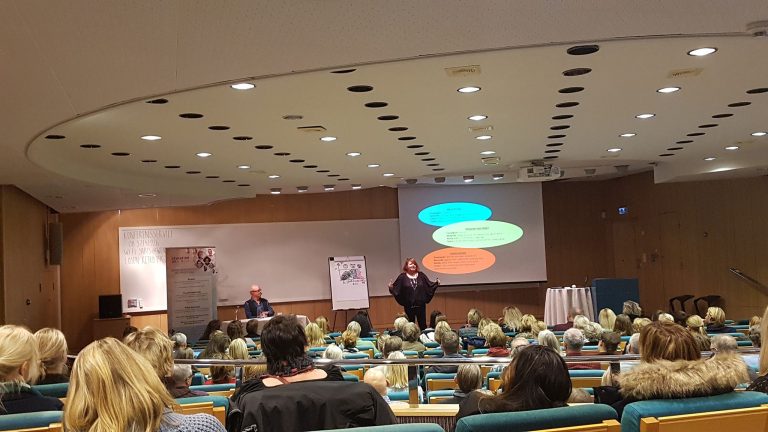

BRAIN-BASED LEADERSHIP – CLEAR RESULTS
Do you want to be at the cutting edge and base your leadership on the latest research? Here you’ll get practical tools for professional leadership, making your role as a manager easier and reducing your stress levels. Better results in employee surveys, more energy and more job satisfaction. Top tips for both your everyday work and more difficult situations. Inspiration, insights and lots of approaches you can use in your everyday work!
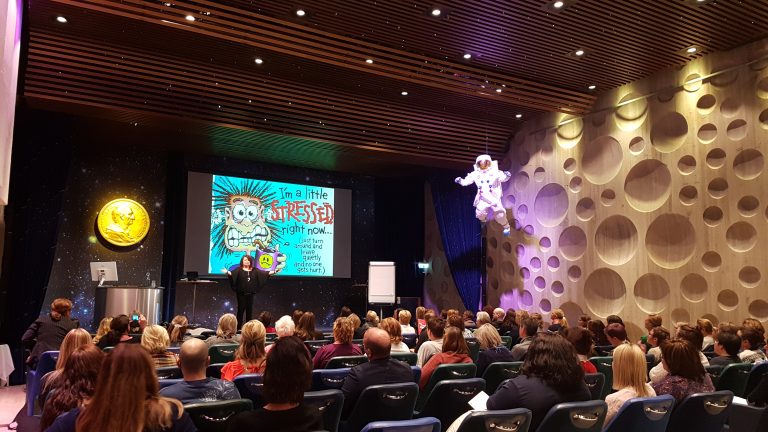

BRAIN-BASED STRESS MANAGEMENT – GET AN AIRBAG AGAINST STRESS
Is it possible to create an imaginary airbag that really works against stress? Of course! And it’s the best way to manage stress. How? Find out in this thought-provoking talk that provides lots of insights and gives you concrete tools to reduce stress and manage your everyday workload in a way that doesn’t overload you. And the result? A more sustainable private and professional life.
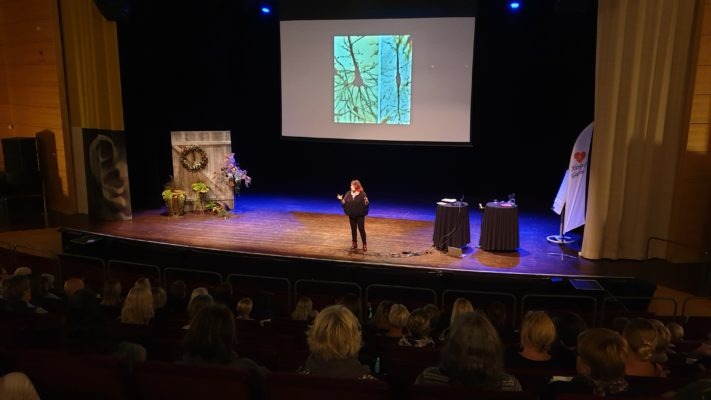

SOCIAL WORKING ENVIRONMENTS THAT CREATE JOB SATISFACTION
A better atmosphere at work? Do you want a working environment that provides more job satisfaction and more energy? This talk provides you with concrete tools for creating a truly appealing working environment. Research into how we work as humans is presented in a humorous and recognisable way. Insights that motivate you to create a really good working environment!
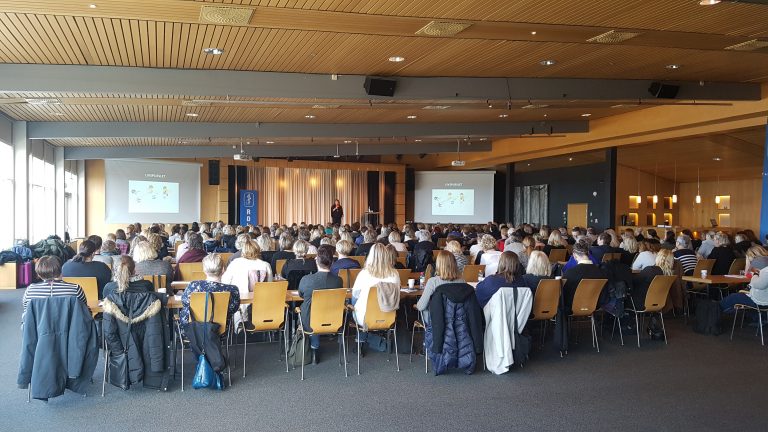

THE TEENAGE BRAIN – THE CONNECTION CODE FOR TEENAGERS
Imagine if you could look into your teenager’s brain and understand what was going on there. That’s exactly what you’ll learn to do in this incredibly interesting talk on the teenage brain. You’ll also receive the tools you can use every day when you encounter teenagers, to create good communication. This is the Connection Code for teenagers!
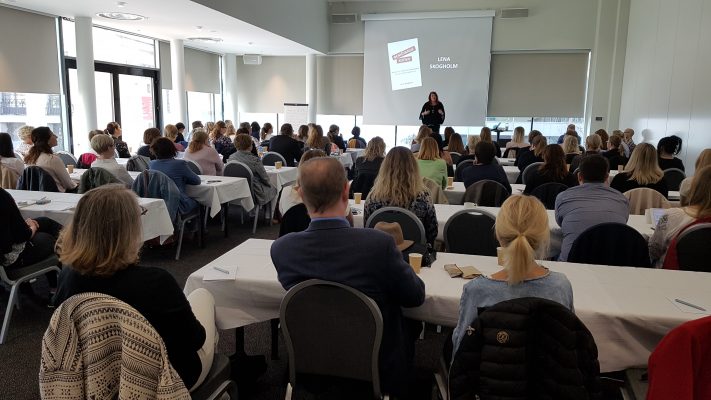

DIFFICULT CONVERSATIONS
This talk will provide you with information about what happens to us as humans in difficult situations or when stresses lead us to an emotional or mental meltdown. How do we deal with this in a respectful way and at the same lead the conversation forwards in a friendly manner? Here you will receive practical, useable tools that will make a big difference in your next difficult conversation!
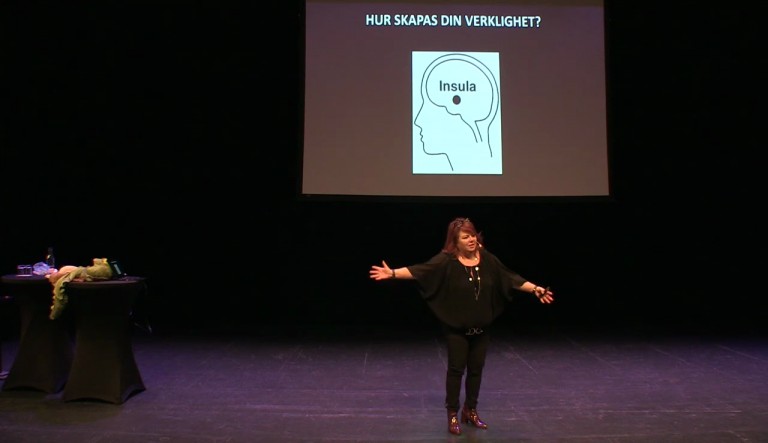

BRAIN-BASED SELF-LEADERSHIP – MOTIVATIONAL
This talk provides you with practical tools that help you exercise self-leadership both in your professional and private life. Employees who take responsibility, participate and take on leadership as employees. Based on research into how we work as people, and provides many useful insights. Motivational, humorous and creates a desire for change!
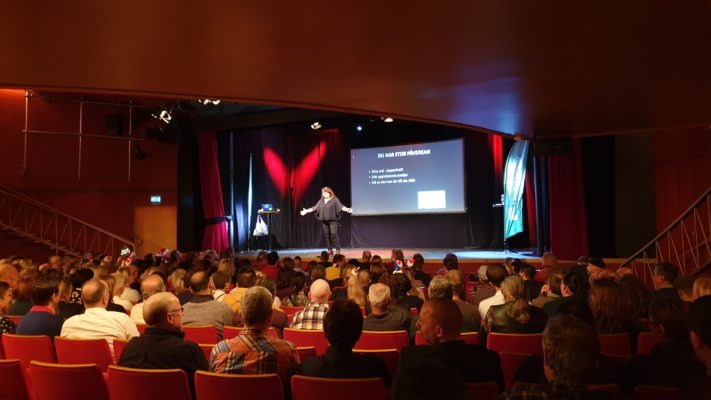

LENA SKOGHOLM HOLDS ESTIMATED LECTURES FILLED WITH INSPIRATION, HEAT AND HUMES IN THE COUNTRY
READ THE INTRODUCTION TO THE CONNECTION CODE HERE
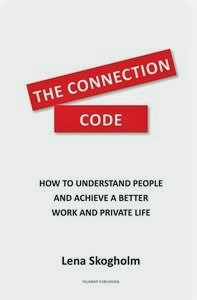

Treat people as if they were the people they should be.
Goethe
Relationships play a major part in our lives. Relationships at work, school or at home. Many of our thoughts involve these relationships and we devote a great deal of time and energy to trying to read other people. What are they thinking now, and how will they act? How should we respond to that? What do they think about us? Do they think we’re OK?
All of these meetings with other people can be quite unpredictable. How people will act when we meet them depends on how they feel and think at that moment. And that depends on many things such as how stressed they are and what happened just before they met us.
What then happens between us affects what we ourselves think and feel. Why did she say that? What did he mean by that?
This has historically essential reasons. Long ago when we lived on the savannah, it was extremely important for us to be part of the group. If we were excluded, it meant certain death. It was therefore important to constantly make sure you had a guaranteed place in the group. You had to constantly review your relationships with the other group members. It was important for the other group members to want you to be one of them. With this in mind, it’s not so surprisingly that we think a great deal about relationships and that conflict is so upsetting to us.
But can we learn more about how we function as humans, so that human interplay stresses us less, and simultaneously create really good encounters in everyday life? Can we use new knowledge to feel more secure in our encounters with other people? Yes, of course we can! And that’s what this book aims to show.


“The Connection Code – How to understand people and get a better work and private life” describes modern brain research that explores the hardware controlling us as humans. When we know about the biological programs that control us and how they work, it creates greater security for us. It acts as a guide to human interplay and we gain an image of the brain’s assumptions in our encounters with each other.
To a large extent, encounters with other people create our lives. They affect how we think about ourselves and other people. If I am listened to and feel respected, this gives me greater self-esteem and self-confidence. If I am belittled and not taken seriously, I begin to doubt myself.
Being listened to and taken seriously is crucial to our self-image. When what we say really counts, we feel that we are part of the group. The others (group members) show that they see me and care about what I have to say. So encounters between people are very important. It’s as if we are created and come into existence in encounters with other people.
A good interaction can help in a difficult situation, making it feel better. A bad interaction can disrupt a simple everyday situation. A good encounter is like a tailwind that makes our steps easier. It’s as if somebody is giving you a push uphill. A bad interaction can be like walking against gale force winds. And if you are already short of energy, it can be really tough.


In my 10 years as a public speaker and trainer, I have heard many different stories. Such as how a manager’s interactions with employees have switched on or off their joy at work, how the treatment of a customer made all the difference to sales figures, how encounters between colleagues led to conflict. I’ve also seen how really good interactions between colleagues and with customers have created both joy at work and better results.
Since I was a child, I’ve observed and reflected about how we behave towards each other, and this interest led to me training as a behavioural scientist and educator. Over the last 25 years, I’ve been passionately interested in the brain and have specialised in how we can benefit from brain research in our everyday lives.
When we collaborate with what’s going on in our brains during everyday interactions, we no longer fall over linguistic tripwires. Instead we have a rope of knowledge to hold onto when we encounter other people. We benefit from this in all of our encounters, and perhaps most of all in difficult situations or when we ourselves feel stressed or rushed.
And it’s against this background that I’d like to wish you a very warm welcome to the Connection Code – How to understand people and get a better work and private life. I hope it gives you new insights that make your everyday life easier when it comes to encounters both with yourself and with other people!
PS:
I got this email from a manager a little while ago.
“It’s completely incredible! The tough conflict we told you about is gone now. After you were here, the employees themselves said ‘Now we’re going to use this linguistic tool in the conflict’. And what happened? What had been infected for so long simply disappeared.”
BOOK AN INSPIRATIONAL TALK FOR YOUR CONFERENCE OR KICKOFF MEETING